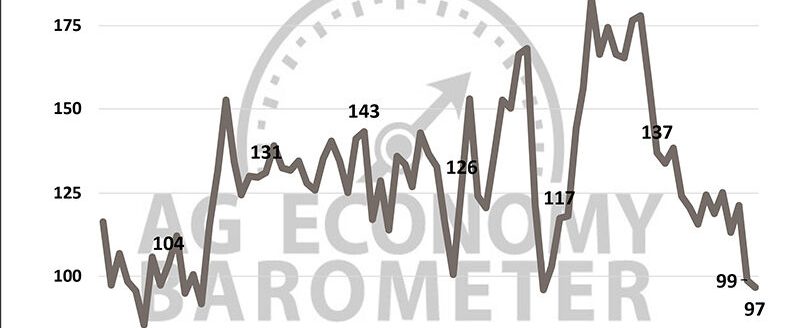Groups seek support of crop insurance
A 65-member coalition of farm-oriented groups, in a letter to members of the House of Representatives April 26, urged members to protect the crop insurance program during House floor debate on the 2018 farm bill.
The groups cited the consistent messages of support for the crop insurance program from the House Agriculture Committee’s farm bill listening sessions and speculation that amendments seeking to significantly weaken the program could be considered during the House debate.
The letter said:
“Over the past three years the House Agriculture Committee has conducted numerous hearings and listening sessions throughout the country to talk about priorities for the 2018 farm bill. One consistent theme from these meetings was ‘do no harm to crop insurance.’ Yet as we approach floor action on the farm bill, we may see amendments that would do significant harm to crop insurance and to rural America.
As you consider the 2018 farm bill on the House floor, we urge you to oppose harmful amendments to crop insurance, including those that would reduce or limit participation in crop insurance, make insurance more expensive for farmers during a time of economic downturn in agriculture or harm private-sector delivery.
Crop insurance is a unique risk management tool available to farmers and ranchers. First, crop insurance policies are available for more than 120 individual crops across the country, and the recent development of Whole Farm Revenue insurance makes coverage available to all crops, in all regions and for all types of farms.
Crop insurance is also purchased by farmers and farmers must prove that they have met a deductible (minimum loss threshold) to be eligible for a payment for a portion of their loss. On average, farmers collectively spend $3.5 to $4 billion per year out of their own pockets for crop insurance coverage, and the average deductible is approximately 25 percent of the expected value of the crop.
Finally, instead of placing the entire risk for crop insurance on the American taxpayer—like ad hoc disaster assistance does—crop insurance shares risk between the taxpayer, farmers and the private sector delivery system.
There is no shortage of reasons why farmers, lenders, agriculture input organizations, conservation groups and others have expressed strong support for crop insurance:
Without crop insurance most producers simply could not qualify for the operating loans they need to put a crop in the ground. Due to extremely tight margins in agriculture, regulators examining agriculture lending portfolios typically insist borrowers have crop insurance.
Crop insurance is available to all types and sizes of producers in all regions.
Crop insurance provides for environmental benefits. Crop insurance requires producers to meet wetlands protections and highly erodible lands protections to be eligible for a premium discount.
Crop insurance is a rapid response solution to disasters. Private sector delivery typically allows farmers who have losses and have met their deductible to receive indemnity payments in less than thirty days, while ad hoc disaster can take months or even years.
Crop insurance protects jobs, both on and off the farm. Crop insurance enables farmers to rebound quickly after a disaster and allows producers to pay credit obligations and other input expenses, such as fertilizer and farm equipment.
Crop insurance is food and fiber security insurance, and food and fiber security is national security. Given the importance of crop insurance, the undersigned organizations urge you to support America’s farmers, ranchers, rural economies and national security by opposing amendments that would harm crop insurance.”
The letter was signed by a disparate set of groups including the American Farm Bureau Federation, National Farmers Union, American Association of Crop Insurers, American Farmland Trust, American Bankers Association, Independent Community Bankers of America, National Corn Growers Association, National Cotton Council, American Soybean Association, National Milk Producers Federation, National Sorghum Producers and the National Association of Wheat Growers.
Larry Dreiling can be reached at 785-628-1117 or [email protected].


